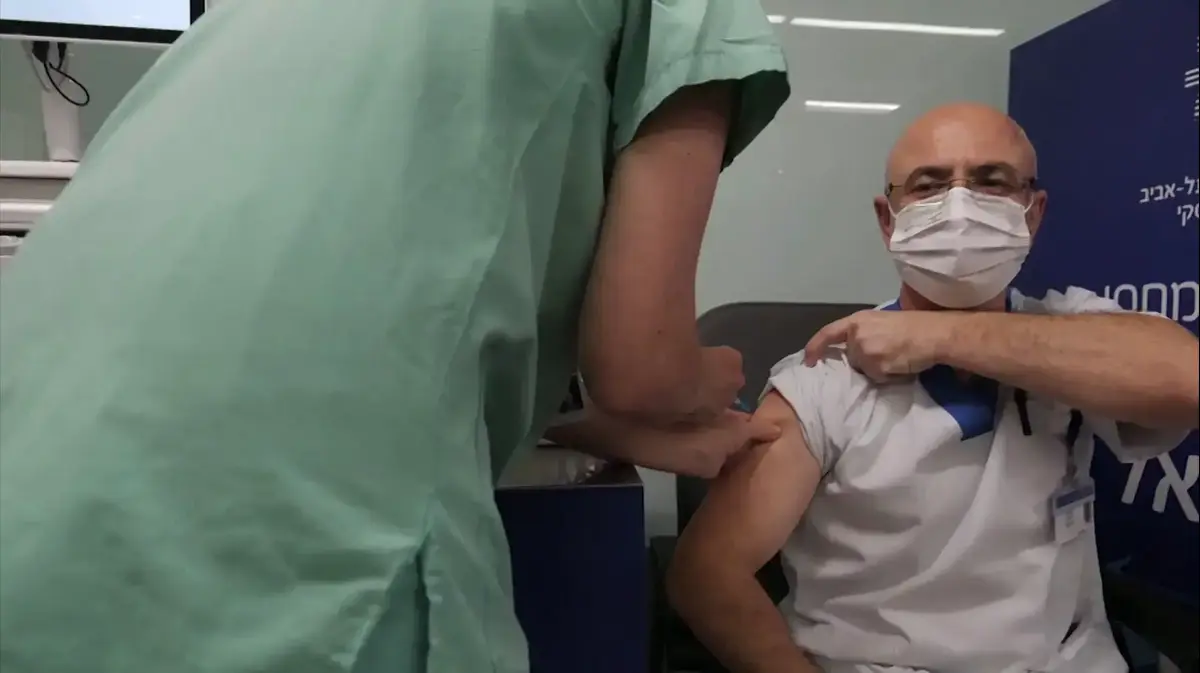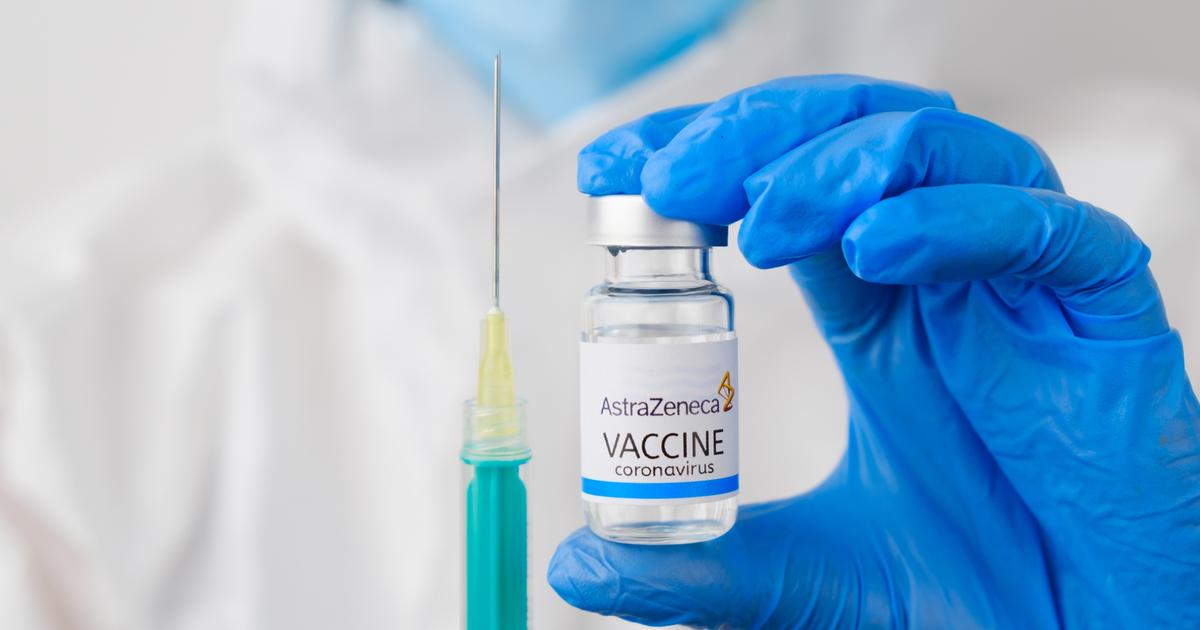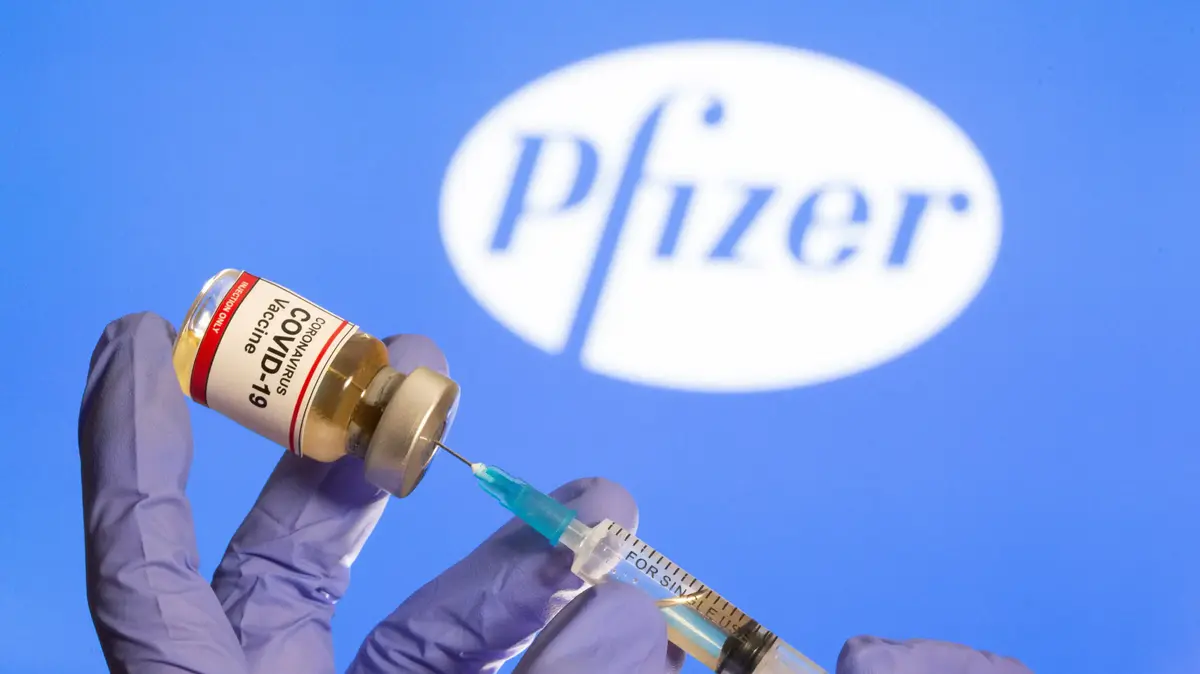Ursula von der Leyen, during a meeting of the European Commission this Wednesday, DPA via Europa Press / Europa Press
Brussels is preparing to go face to face in court with AstraZeneca.
The European Commission is finalizing a lawsuit against the Anglo-Swedish laboratory for the continuous delays of this company in the agreed delivery of doses of its vaccine against covid-19 to the Member States of the European Union (EU).
The decision comes after the Community Executive activated on March 19 an amicable arbitration mechanism with the company, contemplated in the contract as a preliminary step to the courts, and which has not yielded the desired results.
More information
These are the risk and benefit calculations with the AstraZeneca vaccine
Almost half of people between the ages of 70 and 79 have received the first dose of the covid vaccine
The dilemma with Janssen: have those over 30 vaccinated in July or be extremely cautious about thrombi
The Commission announced its initiative on Wednesday at a meeting in Brussels with ambassadors of the Twenty-seven, as the
Politico
medium announced this Thursday.
and has confirmed THE COUNTRY through diplomatic sources.
Member states must now decide whether to support the court case, according to a community source cited by Reuters.
Most of the countries present at the meeting confirmed their willingness to take the next judicial steps, but both France and Germany expressed the need to give themselves a little more time, according to this agency.
"A decision has not yet been made," Stefan de Keersmaecker, the Commission's Health spokesperson, specified at a press conference, clarifying that the initiative to go to court needs the support of the Twenty-seven, as part of the joint EU vaccine strategy, led by the Community Executive on behalf of the Member States. After the Commission started the amicable arbitration mechanism in March to resolve the conflict with AstraZeneca, there have been meetings and an exchange of views with the laboratory's directors, De Keersmaecker explained. But the problem of distribution failures, he added, "has not yet been resolved." This has led the Commission to take new steps.
Brussels, which is considering all possible options to ensure that there is a delivery on time of a sufficient number of doses, considers that the pharmaceutical company has breached its contractual obligations by having supplied only 30 million doses of the 120 million agreed in the first quarter ( 90 million less); for the second quarter the company has announced that it will be able to distribute only 70 million doses of the 180 million to which it had committed (110 million less).
The sum of AstraZeneca's non-compliances would thus reach 200 million doses in six months, with which 100 million Europeans could have been immunized, since it is a double-prick vaccine.
Brussels considers AstraZeneca the main responsible for the delay in the European immunization strategy compared to other countries such as the United States or the United Kingdom.
Vaccination with AstraZeneca in London on February 3 Frank Augstein / AP
A legal claim against the laboratory has to be substantiated in the Belgian courts, as established in the contract. Legal sources explain that it would have been convenient for the Commission to try to include in the agreement that every possible case was processed in the Court of Justice of the EU, in Luxembourg, more accustomed to processes of this magnitude, since the Belgian judicial system could be overwhelmed.
Little by little it is becoming clear that AstraZeneca is being left out of the European vaccine strategy. The Commission, which had signed the purchase of 300 million doses and an additional option of another 100 million, has not even activated this possibility for now and rules out doing so, according to a Commission spokesperson on Thursday. Meanwhile, it has signed new contracts with Pfizer-BioNTech, which has become the great European vaccine, and Moderna. Between them they account for more than 70% of the 135 million doses distributed in the EU to date; only Pfizer reaches two-thirds. These two vaccines are based on the novel messenger RNA technology (a kind of instruction to make proteins similar to those of the other prototypes, but that do not need to enter the nucleus of the cell).
Instead, the AstraZeneca and Janssen vaccines use similar technology, based on attenuated viruses (an adenovirus, the kind that causes colds, with coronavirus genes to elicit the immune response). And, apart from successive delays, both have required new investigations into their safety by the European Medicines Agency (EMA, for its acronym in English). The regulator has forced both labs to include a warning about low platelet thrombosis as a very rare possible side effect.
“We have to focus on the technologies that have proven themselves. Messenger RNA vaccines are a clear example of this, "said the president of the Commission, Ursula von der Leyen, last week, after announcing that she was opening a new negotiation with Pfizer-BioNTech to acquire 1.8 billion doses by 2023, with the sight put in its capacity of adaptation in front of the new variants.















